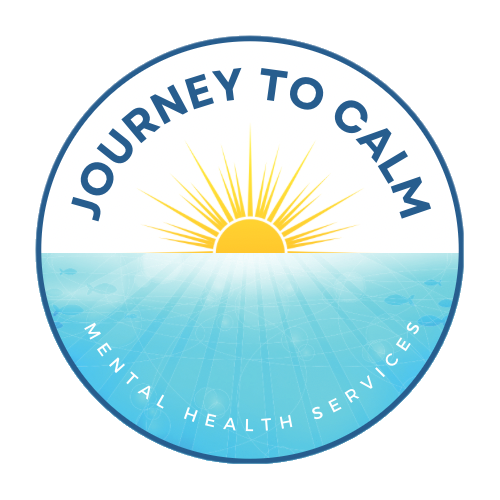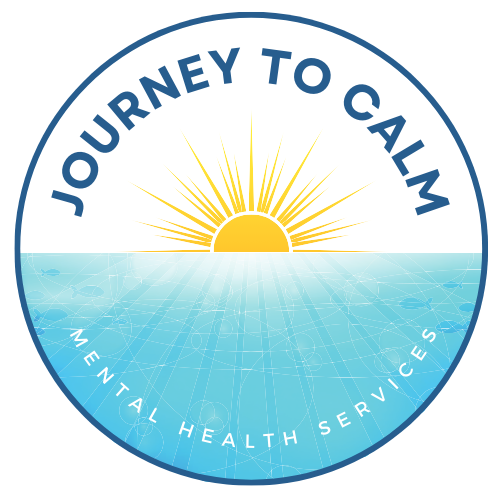
Navigating Work Stress: Strategies for a Healthier Work-Life Balance
Work can be a major source of stress, and that’s something we’ve all experienced at some point. Between tight deadlines, endless meetings, and the pressure to perform, it’s easy to feel like your work life is consuming every ounce of your time and energy. When work starts to seep into every corner of your life, it can leave you feeling drained, burned out, and disconnected from the things that truly bring you joy. But finding a healthier work-life balance isn’t just a nice idea - it’s essential for your well-being and long-term happiness.
In this post, I want to explore some practical strategies for managing work stress and creating a healthier balance between your professional responsibilities and your personal life. These tips are not about overhauling everything at once; they’re about making small, meaningful changes that can help you feel more grounded and in control, even when work gets hectic.
1. Set Clear Boundaries Around Work Hours
One of the biggest culprits of work stress is a lack of boundaries between work time and personal time. When emails and phone messages follow you home, it’s hard to truly switch off and recharge. To create a healthier balance, try setting clear boundaries around when your workday starts and ends.
Define Your Work Hours: If you work a 9-to-5, aim to stick to those hours as much as possible. Close your laptop at the end of the day, resist the urge to check work emails after hours, and communicate these boundaries to your colleagues or clients. Let them know that you’re available during certain times but need to unplug after a certain point.
Create a “Wind-Down” Routine: Just like you might have a morning routine to start your day, a simple end-of-work routine can help signal to your brain that it’s time to switch gears. This could be something as small as tidying up your workspace, shutting down your computer, or going for a short walk outside. It’s a reminder to yourself that work is done for the day, and it’s time to focus on you.
2. Prioritise Tasks with Realistic Expectations
It’s easy to feel overwhelmed when everything on your to-do list seems equally urgent. But not every task deserves the same level of time and energy. Prioritising tasks can help you manage your workload without constantly feeling like you’re playing catch-up.
Use the “3 Most Important Tasks” Rule: At the start of each workday, identify the three most important tasks you need to accomplish. Focus on those first before moving on to smaller or less critical tasks. This helps you make real progress on what matters most and keeps you from feeling scattered.
Break Big Projects into Smaller Steps: If you have a big project that feels overwhelming, break it down into smaller, more manageable steps. This makes it easier to see progress and prevents the stress that comes with feeling like you’re not getting anywhere. Plus, checking off smaller tasks can give you a boost of motivation throughout the day.

3. Incorporate Micro-Breaks into Your Day
When we’re busy, it’s easy to skip breaks, thinking that working through lunch or grinding out that extra hour will get us ahead. But the reality is, taking breaks - even short ones, can do wonders for your focus and stress levels. Your brain needs time to reset and recharge, and stepping away from work for just a few minutes can make a huge difference in your productivity.
Try the Pomodoro Technique: This technique involves working for 25 minutes and then taking a 5-minute break. After four rounds, take a longer break of 15-30 minutes. It’s a great way to maintain focus while making sure you’re not burning out. Use those 5 minutes to stretch, grab a glass of water, or simply look out the window and take a few deep breaths.
Move Your Body: Even a quick walk around the block or a few minutes of stretching at your desk can help release built-up tension in your muscles and improve your mood. Physical movement is a powerful way to break the cycle of stress and reset your focus.
4. Practice Saying “No” Without Guilt
It’s okay to say “no” - in fact, it’s necessary. When you constantly take on more than you can handle, you’re setting yourself up for stress and burnout. Learning to say no in a respectful, clear way can help you protect your time and energy, and it allows you to focus on the work that truly aligns with your goals and priorities.
Be Direct, but Polite: You don’t have to provide a lengthy explanation for every “no.” A simple, “I appreciate the opportunity, but I have too much on my plate right now to take this on,” can be enough. Respectful honesty can actually build trust with colleagues, as they’ll know you’re focused on delivering quality work rather than spreading yourself too thin.
Remember, It’s Not Personal: Saying no to a project or request isn’t about rejecting the person - it’s about honouring your limits. You’re not letting anyone down by prioritizing your well-being. In the long run, you’ll be more effective in your work when you’re not overwhelmed.
5. Make Time for What Recharges You
When you’re feeling stressed, it’s easy to let the things that bring you joy and relaxation fall by the wayside. But these activities are not optional; they’re essential to your mental health and resilience. Finding time for the things that recharge you—whether it’s reading, playing music, spending time with loved ones, or simply enjoying a quiet cup of tea—can make a big difference in how you handle stress.
Schedule “Non-Negotiable” Time for Yourself: Just like you would schedule a meeting or a deadline, schedule time in your day for activities that help you unwind. This could be a 20-minute walk after lunch, a phone call with a friend, or 30 minutes to read before bed. Make these moments a priority, even when work feels demanding.
Set a “Tech-Free” Time: In today’s always-connected world, it can feel like work never really ends. Try setting a time each evening to disconnect from screens—no emails, no work messages, no scrolling through social media. This gives your brain a break and allows you to wind down properly before bed.
6. Reach Out for Support When You Need It
Work stress can be isolating, especially if you feel like you have to handle everything on your own. But asking for help is a sign of strength, not weakness. Whether it’s talking to a trusted colleague, seeking guidance from a manager, or reaching out to a professional like a therapist or coach, getting support can make a world of difference.
Find a Work Buddy: Having someone at work who you can check in with can help you feel less alone in managing stress. Whether it’s a quick chat over coffee or sharing tips for managing difficult tasks, a work buddy can offer a fresh perspective and a sense of solidarity.
Don’t Be Afraid to Set Up a Meeting: If you’re struggling with your workload or feeling overwhelmed by expectations, consider setting up a meeting with your manager to discuss it. Focus on finding solutions together, whether it’s adjusting priorities, delegating tasks, or getting more clarity about deadlines. Most managers would prefer to know when you’re struggling rather than see you burn out.
Finding Balance Is a Process
Creating a healthier work-life balance isn’t about achieving perfection - it’s about making small adjustments that support your well-being. It’s a process that requires ongoing attention and self-compassion, and it will look different for everyone. By setting boundaries, taking breaks, saying no when necessary, and making time for the things that matter most to you, you’ll find that it’s possible to thrive at work without sacrificing your peace of mind.
Remember, you deserve a life that isn’t just about getting through each workday - you deserve to feel balanced, energized, and fulfilled. And that starts with being mindful of how you manage your time, energy, and stress.
© 2024 Journey to Calm Ltd. All rights reserved.

